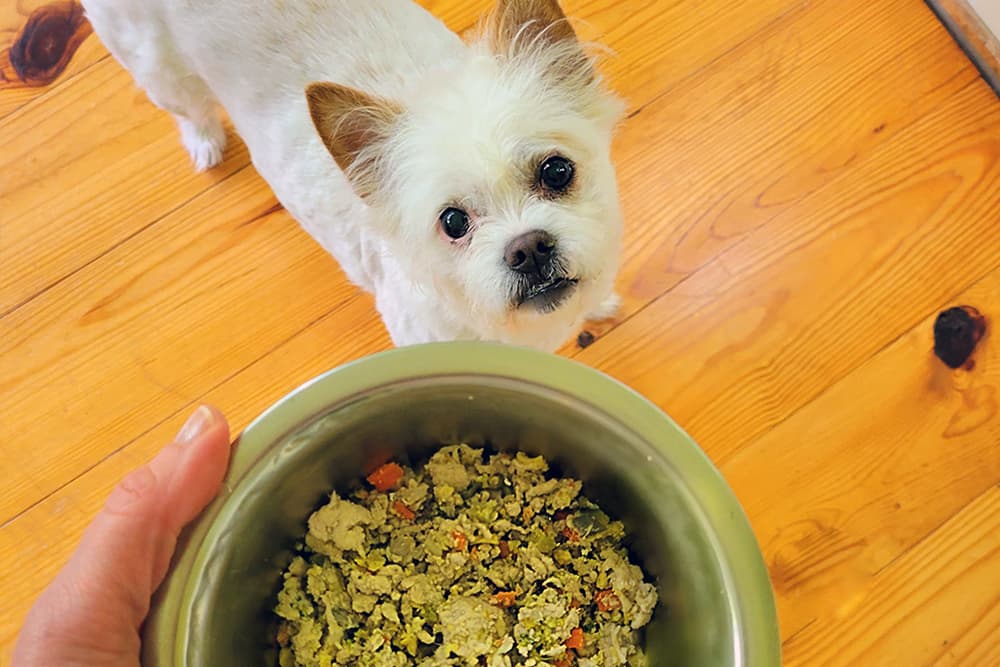Your Puppy: What to Expect at 0 to 7 Weeks
Published on May 03, 2012
Skip To
Congratulations on the decision to get a new puppy! This is a very exciting time. A puppy will bring you lots of joy.
The first seven weeks of a puppy’s life include a lot of change. If you think about it in our terms, your puppy will grow from a newborn to a toddler during these first weeks. You will likely not have much interaction with your puppy during this time because he needs to remain with his mother. If you’re acquiring your puppy from a breeder, pet store or shelter, your puppy shouldn’t be sent home with you until he is a little older. Read below to find out what else to expect during the first seven weeks of your puppy’s life.
During the first few weeks of life, your puppy should get all the nutrition he needs from his mother’s milk. In fact, colostrum, the first milk a mother produces, contains antibodies that will help protect your puppy from many diseases. A veterinarian should examine all the puppies in the litter to make sure they are developing normally. The timing of this first visit may vary depending on many factors including the breed of dog and the experience and abilities of the breeder. When your puppy is about four weeks old, he will start to be weaned from his mother’s milk and should be gradually introduced to commercial puppy food.
Most puppies generally receive their first vaccinations around six to eight weeks of age, with boosters every three to four weeks until they are about 16 weeks old. Recommended vaccines may include a combination of canine adenovirus-2, distemper, parainfluenza and parvovirus. Some combinations may also protect against leptospirosis or coronavirus. Depending on where you live and other factors such as if your puppy will be a show dog or will be kenneled with other dogs, your veterinarian might recommend a Bordetella, or kennel cough, vaccine as well.
As early as three weeks of age, you can put an open crate in the puppy pen, creating a clear distinction between sleep and play areas. This allows the puppy to leave his sleeping area to eliminate. This simple step can make house-training much easier.
When your puppy is five or six weeks old, interaction with people one-on-one is important. This will encourage him to form a positive relationship with people, beginning the important socialization process.
The first seven weeks of a puppy’s life include a lot of change. If you think about it in our terms, your puppy will grow from a newborn to a toddler during these first weeks. You will likely not have much interaction with your puppy during this time because he needs to remain with his mother. If you’re acquiring your puppy from a breeder, pet store or shelter, your puppy shouldn’t be sent home with you until he is a little older. Read below to find out what else to expect during the first seven weeks of your puppy’s life.
Physical and Mental Development
Like a human newborn, your puppy will sleep a lot at first. During the first two weeks, your puppy is dependent on his mother because he does not see or hear well and cannot adequately regulate his body temperature. But by week three, your puppy’s senses (sight, sound, smell, taste) will have greatly improved, he will have increased in size, and he will start walking around, although he will be wobbly at first, of course. Over the following weeks, your puppy will continue to grow and develop into an irresistible and inquisitive individual.Behavior Changes
Between the third and fourth week of life, your puppy will begin to show interest in the world around him. Up to now, he has been mainly interested in sleeping and eating. Allowing your puppy to be curious is important at this time. New objects, such as empty boxes or age-appropriate toys, should be introduced into his environment. It is still too early to remove your puppy from his litter, as this sudden uprooting from all things familiar would cause a lot of fear and stress. In addition, your puppy is still learning what it is to be a dog, and he depends on his mother and littermates for this training.Health & Nutrition
The first two weeks of life can be a hazardous time for your puppy because he is so dependent on his mother. However, a good breeder will be prepared for the litter’s arrival, making sure the mother is healthy and has received her vaccinations and other wellness care before pregnancy, and will watch closely for maternal neglect or other problems after the puppies’ birth. Tip: Very young puppies rarely cry. Crying is a sign that something is wrong with your puppy. If he cries, he may be sick, hungry or cold.During the first few weeks of life, your puppy should get all the nutrition he needs from his mother’s milk. In fact, colostrum, the first milk a mother produces, contains antibodies that will help protect your puppy from many diseases. A veterinarian should examine all the puppies in the litter to make sure they are developing normally. The timing of this first visit may vary depending on many factors including the breed of dog and the experience and abilities of the breeder. When your puppy is about four weeks old, he will start to be weaned from his mother’s milk and should be gradually introduced to commercial puppy food.
Most puppies generally receive their first vaccinations around six to eight weeks of age, with boosters every three to four weeks until they are about 16 weeks old. Recommended vaccines may include a combination of canine adenovirus-2, distemper, parainfluenza and parvovirus. Some combinations may also protect against leptospirosis or coronavirus. Depending on where you live and other factors such as if your puppy will be a show dog or will be kenneled with other dogs, your veterinarian might recommend a Bordetella, or kennel cough, vaccine as well.
Training Tips
Puppies that are seven weeks old or younger should remain with their mothers and littermates so that they can learn about discipline and appropriate behavior with their fellow pups in a safe environment. This interaction will profoundly influence how well your puppy gets along with other dogs in the future.As early as three weeks of age, you can put an open crate in the puppy pen, creating a clear distinction between sleep and play areas. This allows the puppy to leave his sleeping area to eliminate. This simple step can make house-training much easier.
When your puppy is five or six weeks old, interaction with people one-on-one is important. This will encourage him to form a positive relationship with people, beginning the important socialization process.





